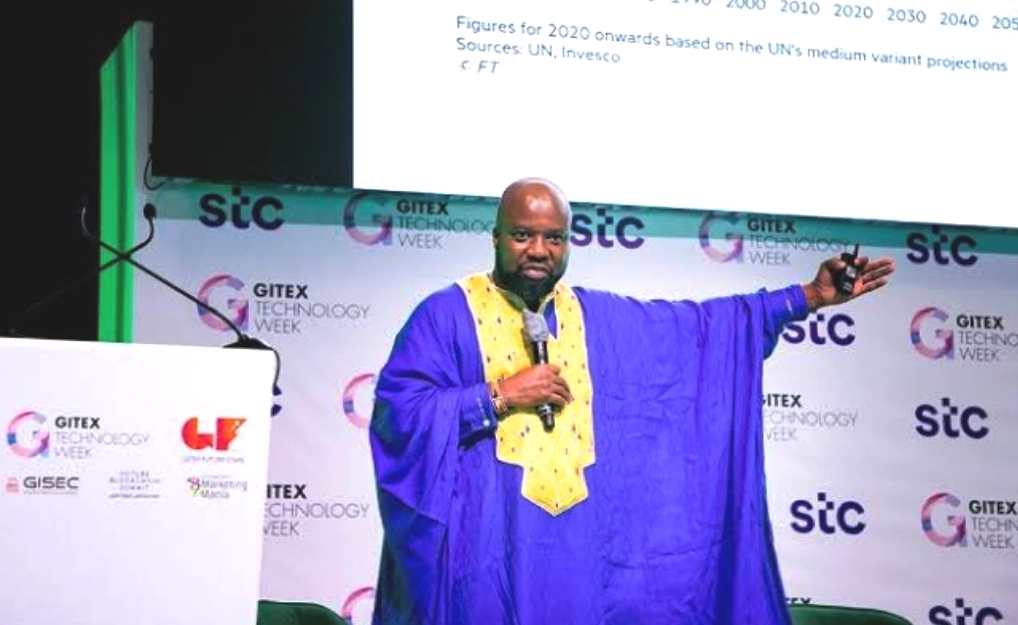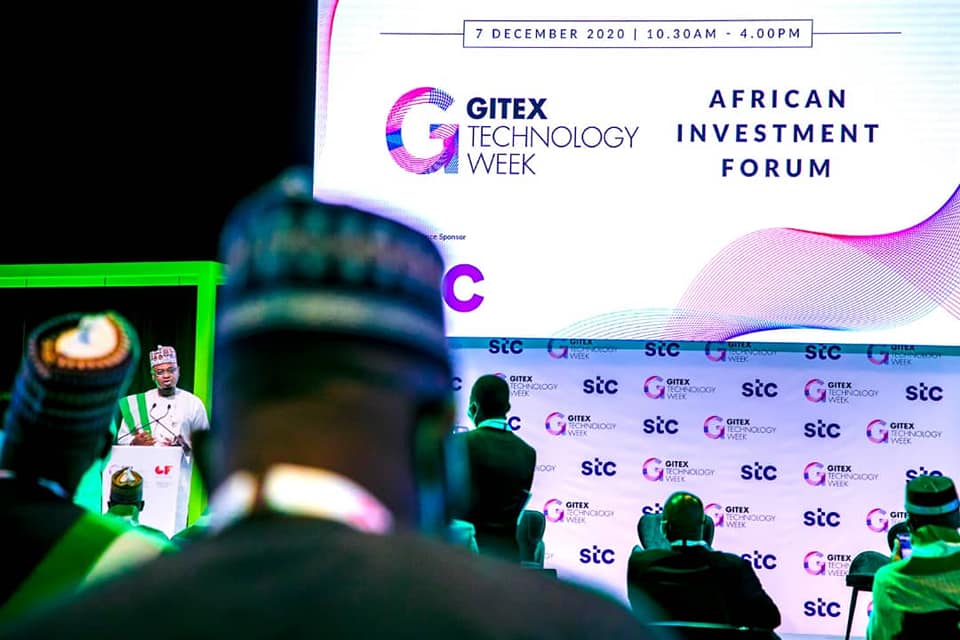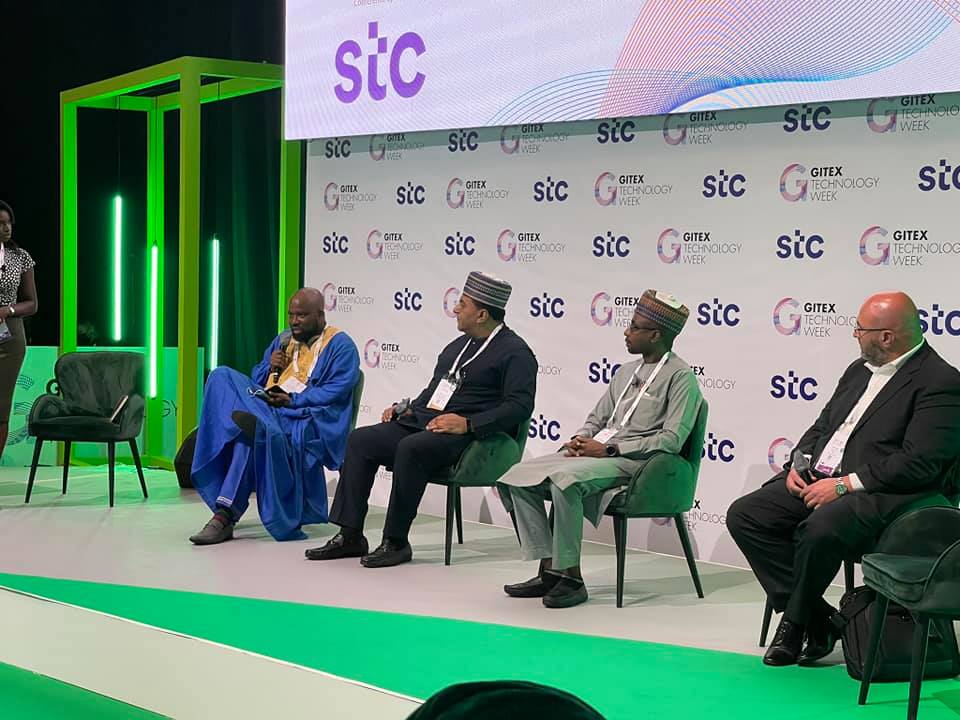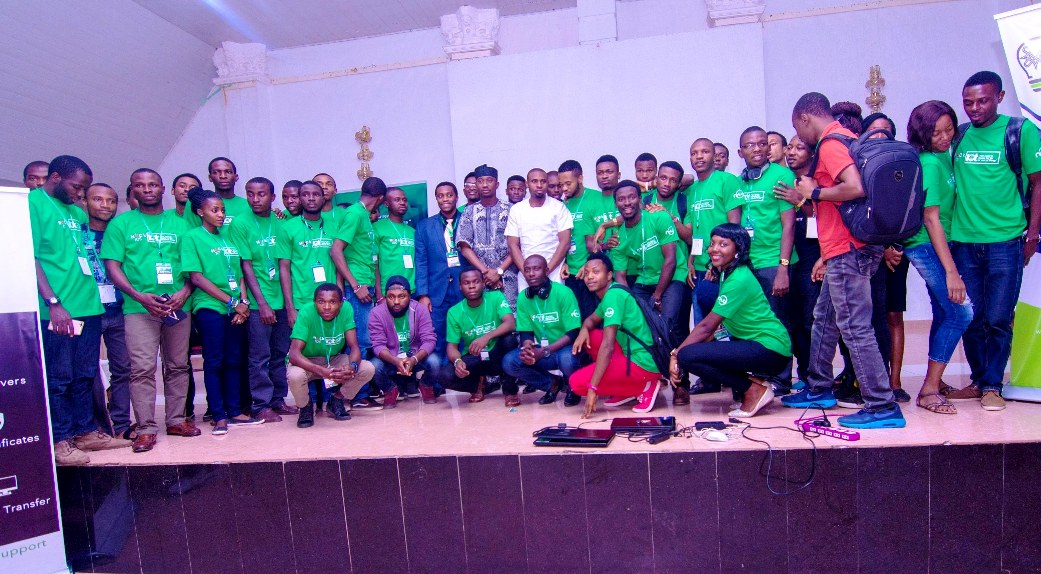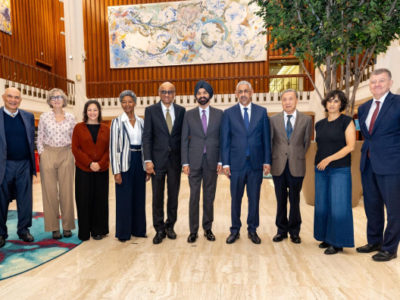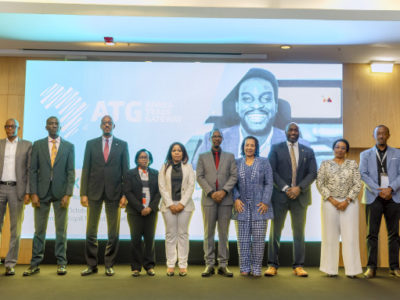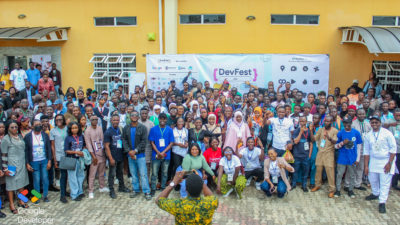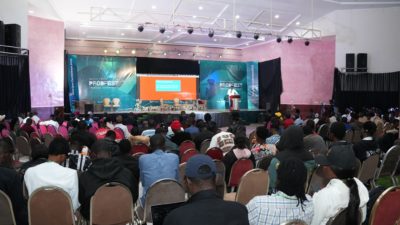Africa is the 21st century hub for innovation, investments and economic growth. With more than 1.3 billion people, majority between 15 and 25, Africa has the world’s youngest population and will be the defining ground for high skilled labour and mid-level income that will feed the global capital market perpetually in transition. One of the continent’s foremost investment and tech evangelists, Eric Osiakwan, shares this enthusiasm with Segun Oruame, founding editor @ IT Edge News.Africa
Africa’s big economic push will be led by “Kenya, Ivory Coast, Nigeria, Ghana, and South Africa,” Osiakwan tells the audience of mix nationalities inside the Green Hall, venue of the Africa Investment Forum (AIF), one of the headlined events of the 40th edition of GITEX Technology Week Dubai, UAE. GITEX ends today. The AIF was co-hosted by the Dubai World Trade Centre (DWTC), organisers of GITEX and the Nigerian government through the National Information technology Development Agency (NITDA), an agency under the country’s Ministry of Communications and Digital Economy.
The five countries make up the KINGS – an acronym Osiakwan created out of the first letter of each of the countries: “Kenya, Ivory Coast, Nigeria, Ghana, and South Africa.”
RELATED: $23M of Angel Fair Africa deals after 7 years
“Like the Asian Tigers, these five countries lead the continent’s technology innovation. They are not only the fastest-growing economies on the continent but also the pillars of innovation and high-tech entrepreneurship. The KINGS are the countries leading the development of the digital economy in Africa and setting the pace for the rest of the continent,” said Osiakan during his presentation: ‘Kings of Africa: Unleashing the Power of Innovation for Business Opportunities and Economic Growth.’
Osiakwan should know. He has over two decades as a tech entrepreneur and Angel investor bolstering the continent’s connectivity infrastructure in more than 32 countries and helping to promote the startup ecosystem across Africa.
While the African narrative is often bleak, Osiakwan thinks pessimists often missed the larger picture. Africa is not so far from Asian outlook prior to the 60s. The continent was war-torn and majorly composed of underdeveloped or developing nations. That narrative has since changed in the last two decades or so.
As the Futures Platform report will put it “a string of economic booms lifted the Asian economies, rapidly turning it into the largest economic zone in the world. Japan, followed by the Asian tigers (Singapore, Taiwan, South Korea, and Hong Kong) and China have all contributed to the so-called “Asian miracle.” Counting with 60% of the world population, it is also the fastest growing economic region in the world. It is no wonder, then, that many hope for similar booms elsewhere. And one particular good candidate continent is Africa. Will Africa follow Asia’s footsteps?”
Osiakan is convinced Africa is overtaking Asia. In spite of recurring challenges, the KINGS have common features that position them as leading the fundamental changes altering the continent for good.
The KINGS economies lead the rest of the continent by laying a strong foundation through increased broadband penetration and development of pro-innovation public policies that facilitate innovation by digital natives and millennials.
Osiakan says a mix of supportive policies, tech infrastructure, steady development of digital economies, pro-innovation public policy agendas, and a deliberate fostering of entrepreneurial ecosystems have all helped to reposition how the continent will play in evolving new world economic order.
But the continent’s leaders can and must do more. Large population is nothing if majority lacks economic power. But the good news is that the increasing adoption and use of technology; promotion of innovations among its relatively young population; and the expanding business opportunities do not with the often gloomy portrayal of African economies, as one other report notes.

